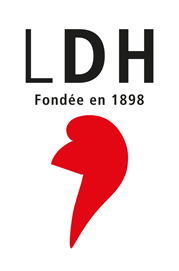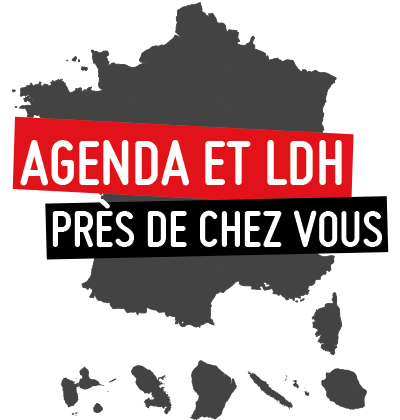Lettre ouverte de plusieurs organisations, dont la LDH, adressée au Parlement slovaque
Members of the National Council of the Slovak Republic
Námestie Alexandra Dubčeka 1
812 80 Bratislava 1
Slovakia
18 November 2019
Dear Members of the National Council of the Slovak Republic, We are writing to express our deep concern regarding current legislative attempts to roll back on the reproductive rights of women in Slovakia. At this time the Parliament is debating new draft legislation that would require women seeking abortion care to undergo a mandatory ultrasound scanning, to view and obtain the ultrasound image of the embryo or the foetus, and where technically possible, to also listen to the “heartbeat of the embryo or the foetus.” The proposed legislation also seeks to prohibit “advertising” on abortion and to impose a fine of up to 66,400 Euros on those who order or disseminate it.1Our organizations are deeply concerned by these proposals. If adopted, this legislation will harm women’s health and well-being, obstruct their access to safe abortion care and violate Slovakia’s international human rights obligations. Forcing women in Slovakia to undergo a mandatory ultrasound, view the ultrasound image and listen to the “foetal heartbeat” before abortion would undermine their privacy, personal integrity, autonomy in decision-making about health care and would subject them to harmful stigma, humiliation and degrading treatment. It would violate the requirement that medical decision-making must be free of coercion, and that a patient’s consent to medical procedures should be given freely and voluntarily. There is no medical reason whatsoever for the proposed changes. As confirmed by the World Health Organization (WHO), there is no medical reason for routine ultrasound prior to abortion. Instead, the WHO has underlined that women’s decisions to access abortion care should be respected and that safe abortion should be “delivered in a way that respects a woman’s dignity, guarantees her right to privacy and is sensitive to her needs and perspectives.”2 International human rights mechanisms have stressed that states must ensure the availability and quality of safe abortion services in line with the WHO safe abortion guidelines, including removing measures that attempt to dissuade women from accessing abortion care.3
If this legislation is adopted, Slovakia would be the only EU member state to impose these harmful requirements on women. No other EU member state imposes on women a requirement to undergo mandatory ultrasound for obtaining abortion care and no other member state requires that women view ultrasound images or listen to the “foetal heartbeat” before abortion. Similarly, the WHO has stressed the importance of ensuring all women have access to evidence-based information about abortion and their entitlements to legal reproductive health care.4 The proposed prohibition of “advertising” on abortion would lead to restrictions on access to evidence-based information on abortion care and would have a chilling effect on the provision of such information by medical providers. International human rights mechanisms have underlined that medically unnecessary legal restrictions on the availability of evidence-based information on sexual and reproductive health, including safe and legal abortion, contradict states’ obligations to respect, protect, and fulfil women’s right to the highest attainable standard of health. They havemade it clear that “[s]uch restrictions impede access to information and services, and can fuel stigma and discrimination” and have called upon states to “[e]nsure that accurate, evidence-based information concerning abortion and its legal availability is publicly available.”5In addition, the European Court of Human Rights has held that “[o]nce the legislature decides to allow abortion, it must not structure its legal framework in a way which would limit real possibilities to obtain it”6 and has underscored that European states have “a positive obligation to create a procedural framework enabling a pregnant woman to exercise her right of access to lawful abortion.”7If adopted, the legislation will undermine Slovakia’s compliance with its obligations under international human rights treaties to guarantee women’s rights to health, privacy, information, to be free from inhuman or degrading treatment, and the principles of non-discrimination and equality in the enjoyment of rights. In addition, the adoption of these proposals will be contrary to the fundamental internationallegal principle of non-retrogression. International human rights mechanisms have repeatedly called on Slovakia to remove barriers to and ensure access to safe and legal abortion. Most recently, in October 2019, the UN Committee on Economic, Social and Cultural Rights expressed deep concern about this pending regressive legislation and urged Slovakia to avoid any retrogression in relation to women’s sexual and reproductive health rights.8We call on all Members of Parliament to reject this regressive legislative proposal and refrain from further attempts to restrict reproductive rights in Slovakia.
Yours sincerely,
Signataires : Abortion Rights Campaign, Ireland Amnesty International ASTRA Network CESI – Center for Education, Counselling and Research, Croatia Center for Reproductive Rights European Humanist Federation Federation for Women and Family Planning, Poland Family Planning and Sexual Health Association, Lithuania Family Planning Association of Moldova Femini Berlin Polska/Berliński Kongres Kobiet/Manifest Wolnej Polki, Germany FOKUS – Forum for Women and Development, Norway Fundación Aspacia, Spain Fundacja im. Kazimierza Łyszczyńskiego, Poland HERA – Health Education and Research Association, North Macedonia Human Rights Watch International Campaign for Women‘s Right to Safe Abortion International Commission of Jurists International Planned Parenthood Federation European Network Libres Mariannes, France Ligue des droits de l’Homme, France Lobby Europeo de Mujeres en España – LEM, Spain L’Union des Familles Laïques – UFAL, France Marie Stopes International Medical Students for Choice, United States Planning Familial, Luxembourg Reproductive Rights Platform, Croatia RFSU – The Swedish Association for Sexuality Education, Sweden Rutgers, Netherlands Sarajevo Open Centre, Bosnia and Herzegovina Society for Feminist Analyses AnA, Romania Women Enabled International Women on Web Women’s Resource Center, Armenia Women’s Room – Center for Sexual Rights, Croatia World Organisation Against Torture (OMCT) YouAct – European Youth Network on Sexual and Reproductive Right.


